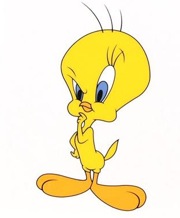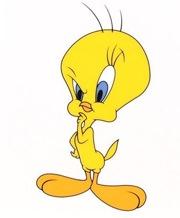Johann Sebastian Bach didn’t shy away from tackling big issues in his music. After all, the composer wrote vast cycles of sacred cantatas on the nature of God. The light-hearted “April Follies” program that the American Bach Soloists presented Saturday, however, allowed us to hear Bach’s take on two themes less frequently treated in the composer’s work: love and … substance abuse.
The “Wedding” and “Coffee” cantatas served as bookends to a concert rounded out by “Brandenburg” Concerto No. 4 and two works by Bach’s friend and one of the most prolific composers in music history, Georg Philipp Telemann: a newly discovered recorder concerto and the hilarious Cantata, or Funeral-Music for an Artistically Trained Canary. This delightful concert, at First Congregational Church in Berkeley, featured soprano Yulia Van Doren, baritone Joshua Copeland, recorder player Judith Linsenberg, and violinist Johanna Novom, all supported by the sparkling ABS orchestra conducted by Jeffrey Thomas.
Related Articles
Jeffrey Thomas: How to Handle a Masterwork
An interview with the ABS Director
Sweetness and Light From American Bach
CD Review: What Sweeter Music
The programming of the “Wedding Cantata,” scored for soprano and orchestra, was timely, if not for April Fools’ Day, then certainly for the Bay Area’s recent change of seasons. It is rife with images of winter thawing into the buds of spring and the blossoming of new love. Van Doren seduced the audience immediately with the hypnotic opening aria, “Weichet nur, betrübte Schatten” (Vanish, mournful shadows). Her warm, flirtatious presence was solidly grounded in her keen instinct for expressing the words. The recitatives sprang to life with her playful delivery. Among the many highlights was the rustic central aria “Wenn die Frülingslüfte streichen” (When the spring breezes caress), charmingly complemented by Elizabeth Blumenstock’s obbligato violin. Debra Nagy also contributed exquisite obbligato playing, particularly in the opening aria.
The U.S. premiere of Telemann’s “Harrach-Konzert” Recorder Concerto in G Minor, which Reinhard Goebel recently rediscovered in Vienna, was a treat. Like so many of Telemann’s other solo concertos, its aesthetic success hinges entirely on the charisma of the performers. Fortunately, the task fell to the eminently capable Linsenberg. She exhibited a graceful, unencumbered virtuosity and a sensitive approach to phrasing. The orchestra handled Telemann’s unusual harmonic twists and quick runs, evocative of the French overture style, with panache.
The Canary-Fancier’s Lament

Telemann’s “Canary Cantata,” for baritone and orchestra, wins the prize for the program piece with the most absurd subject. The composer sets a lament for a dead pet canary, eaten alive by an alley cat, to ironically serious, Passion-worthy music. Joshua Copeland’s earnestly morose interpretation of this story left me befuddled, especially since he is quoted on the ABS Web site describing the cantata as “ridiculous and hilarious.” I felt like I had shown up to hear about Tweety Bird finally falling prey to Sylvester, only to discover, awkwardly, that I was actually at the funeral of Copeland’s best friend. Displaying a Buddhist-like reverence for the loss of animal life, he missed the possibilities of recitatives rife with absurd images of the feathery deceased. The arias, too, were unexpressive, on the whole — disappointing, given Copeland’s pleasant and flexible instrument. He did, however, come alive for the last few numbers, and ended wonderfully viciously with the line, “You alley cat! Because you ate this little animal, my wish for you is death by stoning.”
Following intermission, the orchestra returned to the stage for a spirited performance of Bach’s “Brandenburg” Concerto No. 4, featuring violinist Novom, with Linsenberg and Nagy on recorders. Novom was enchanting and especially impressive in her assured execution of the virtuosic violin part of the third movement. Linsenberg and Nagy made delightful interlocutors, with Nagy in particular demonstrating her versatility.
It was unfortunate that much of the program was plagued with balance problems, the fault lying with the muddy acoustic of First Congregational Church. Van Doren’s voice was frequently obscured by the orchestra, and the subtleties of dialogue between the soloists in “Brandenburg” No. 4 were lost in space. I would have preferred to hear the program in a smaller space, more suited to chamber music’s intimacy.
Balance was less an issue in the “Coffee Cantata,” Bach’s candid take on the effects of caffeine addiction on familial relations. It tells of the tension between the youthful, coffee-loving Lieschen (Van Doren) and her father, Schlendrian (Copeland), who worries that his daughter’s frequent hopped-up caffeination will dissuade potential suitors. After giving the downbeat for the continuo players, conductor Thomas surprised the audience by promptly turning around to sing the tenor part of the Narrator, setting the scene between Copeland and Van Doren. Copeland’s serious stage presence was more effective here, as he portrayed the concerned parent, offering a great foil to Van Doren’s sassy, flirtatious characterization of Lieschen, who was hilarious. Even when not singing, she was impetuously thumbing through her score, as if it were the latest issue of Seventeen, or flipping her hair in time to the continuo’s cadences with a brand of disdain known only to teenage girls. Van Doren’s alluring stage presence and gift for comedy won the audience’s hearts.

